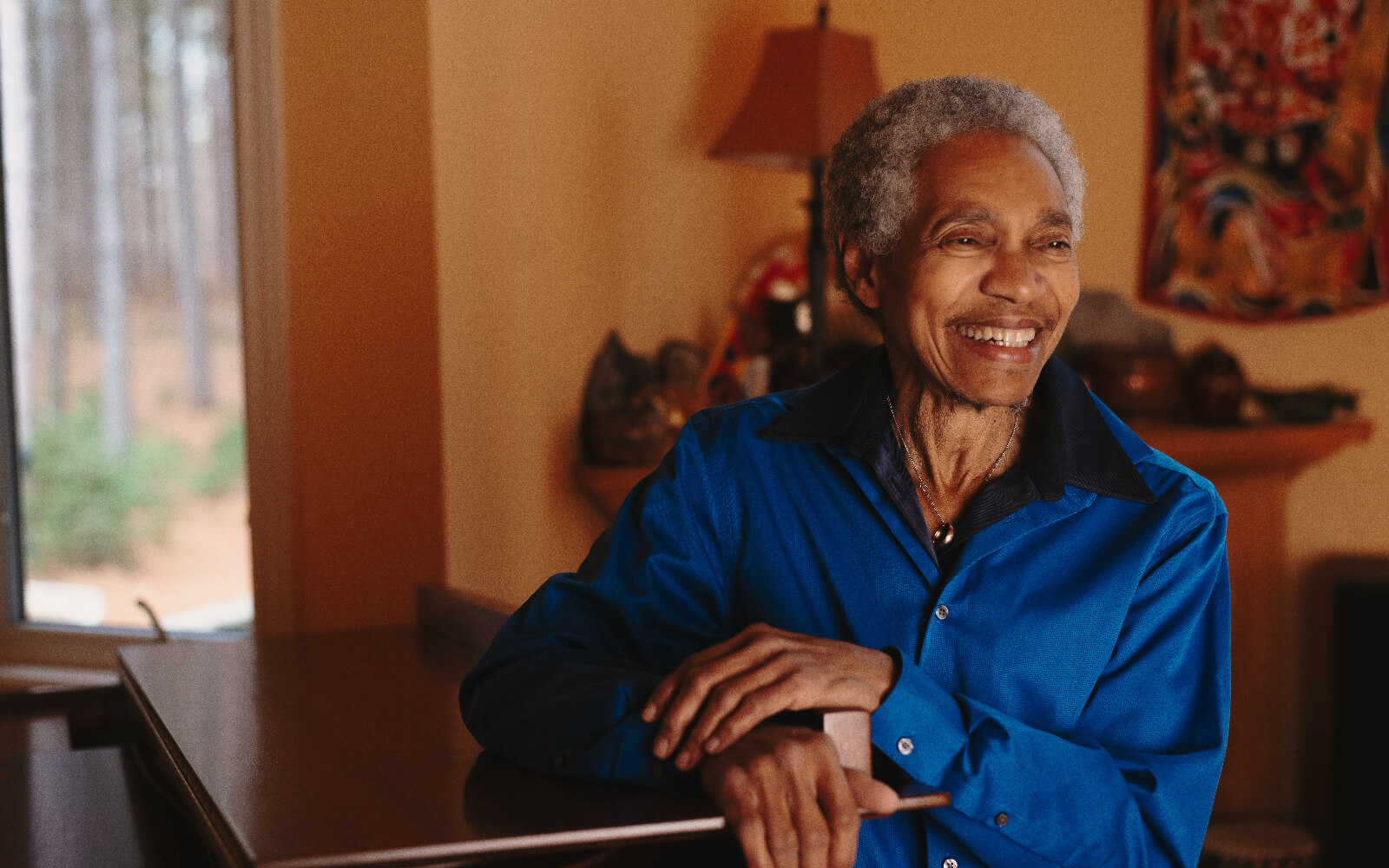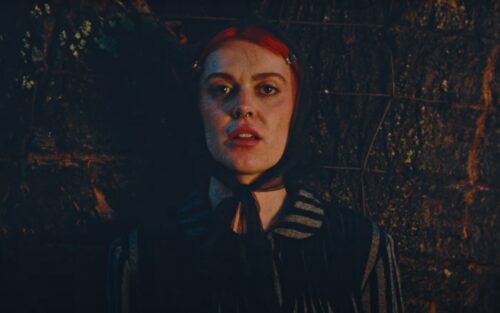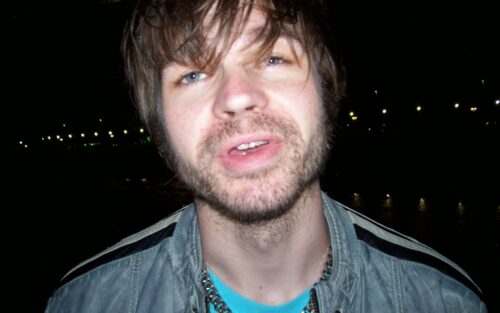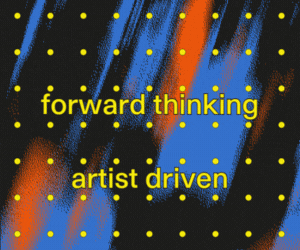Beverly Glenn-Copeland’s Anthems of Radical Hope
The beloved musician more than makes up for lost time with a gorgeous ode to the next generation.
By Madeline Lines
Illustration by Brandon Celi
- Published on
Answering questions via email, Copeland is preserving his energy for bigger things than Zoom calls. He’s about to let the world hear his first new album since being “discovered” eight years ago, and tour it to bigger audiences than ever before. In his writing back to me, however, it’s evident that his special glimmer transcends whatever medium we’re connecting over. After all, it’s Copeland’s words – often sparse, but comforting, humming above hypnotic melodies – that have soothed so many.
“Part of my Buddhist practice involves a commitment to provide encouragement to others, so I am very glad this music can provide comfort,” says Copeland. “We all need that so much, particularly in times of such struggle, of such discontinuous change.”
I wonder what brings comfort to Copeland, as the comforter of many. He tells me that part comes from spending time in the natural world, especially in meeting those who are committed to caring for the environment through Indigenous ways of knowing. Having lived and made music in the forests of Eastern Canada for many years, nature’s influence is deeply embedded within his music.
“When this work is done with a commitment to (and here I am paraphrasing the work of Indigenous elder and scientist, Robin Wall Kimmerer) ‘choosing joy over despair’, it is a powerful act of rebellion,” says Copeland of the environmental action that heartens him.
He also finds comfort in his circle of loved ones, especially his wife Elizabeth. A single off the new album is an ode to her, a gem he’d made as a birthday gift in a year past. Copeland has often talked about having a strong premonition that his music would only be discovered posthumously. His wife was having none of that – and prayed for years for his music to finally reach the right ears.
“Elizabeth believed in the power of my music during the times when very few others were interested,” Copeland says. “It took almost a decade for the universe to find a way to make something happen during my lifetime, but happen it did.”


Plucked out of relative obscurity back in 2015, Copeland’s luck turned when a record collector in Japan fell in love with the 1986 album Keyboard Fantasies. He reached out to Copeland via email to purchase every copy of the album left in existence, with record labels’ interest hot on his heels. The world soon fell in love with Copeland’s music through that reissue in particular, a hypnotic and calming computer-made collage of sounds that was ahead of its time. After being so beloved for a specific work, did Copeland feel any pressure to create the next Keyboard Fantasies?
“Not at all,” he says. “Throughout her career, Joni Mitchell always refused to be held hostage to previous works – her musical gifts driving her to continue to explore, create, and stay curious. I don’t claim Joni’s level of brilliance, but there is a parallel here – once the music is written and recorded, I must move on.”
Copeland’s musical history sprawls out far beyond that one album, including many years on the celebrated kids show, Mr. Dressup, which ran on Canadian television from 1967 until 1996. It’s not a coincidence that children were the first ones to be transfixed by his soft sounds. He often explains that the few copies of Keyboard Fantasies that were sold during its release were used by mothers to lull their babies to sleep. Much of the audience his music was made for was only just being born, or yet to be, when it first came out. Now, they’re all grown up and waiting with hungry ears for his next album. He’s created it with them in mind, calling it The Ones Ahead.
“This album feels like the culmination of my life’s work, my life’s mission,” says Copeland. “In my 80th year, I am keen to be of service to the ones who must make their way in these very difficult times.”

(Photo: Brianna Blank)
From rallying songs for social and environmental justice, to pieces that bridge the diaspora and channel his ancestors and West African roots, and even coming to terms with his own death on ‘Love Takes All’ – the new album is a culmination of decades of hard-earned wisdom. It all came to Copeland through a channel he calls the “Universal Broadcasting System,” a collective creative stream that randomly presents him with ideas, which he then brings into being. His music doesn’t come on his own schedule.
“Many of the songs on this album were written years, if not decades ago. Lucky for me, my manager (at the time) and my music publisher came to the garage studio of our home in Sackville, N.B., pored through stacks of music, old recordings etc. and found some of the gems you hear on this album, like ‘People of the Loon.’ Otherwise they may have been lost forever,” says Copeland.
The Ones Ahead was recorded with Indigo Rising, the supporting band Copeland has been making music with in this new era. The group of younger musicians are cut from the same cloth as Copeland’s devoted audience – a spunky, energetic bunch that not only resonate with his music, but with Copeland himself. It took many years for the artist to realize his true identity and finally embark on life as a transgender man, and it’s not lost on him that the younger generations are leading the charge of progress.

(Photo: Brianna Blank)
He wants this album to help them feel “…active hope, the desire to reject the current trend towards dystopia and cynicism, and to stand in solidarity for the future that wants to be born.” He lovingly endorses younger artists covering, being inspired by, or riffing off his music – like Romy’s recent track ‘Enjoy Your Life,’ or Rae Spoon’s cover of ‘Ever New.’ Copeland says of the tracks, “Put on your dancing shoes!” and “Get out your hankies!” respectively.
The cover of the new album sums up the feeling of it all. Copeland’s eyes are softly closed, his hand gently resting on his chest. It looks like a gesture of gratitude, or at least one of deep peace. He’s finally been connected with an audience that understands him, and this is his first conscious chance to speak to them.
“Hope is a verb. Love is a verb. These words have power when enacted, embodied,” says Copeland. “Our strength to stand up to the destructive forces that threaten our very existence lie in our connections with each other, our reciprocal connections with the living world.”
By Stephan Boissonneault
Nate Amos revisits a decade of stray ideas and turns them into his most compelling record yet.
By Khagan Aslanov
Mike Wallace’s electro-punk project premieres the hypnotic, percussion-driven video for "Certain Days."











